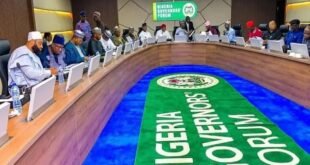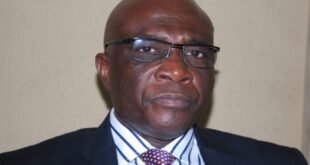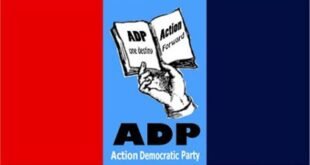The Socio-Economic Rights and Accountability Project (SERAP) has filed a lawsuit against the Central Bank of Nigeria (CBN) over its “failure to account for and explain the whereabouts of over N100 billion in ‘dirty and bad notes’ and ‘large sums of other cash awaiting audit’ stashed in various CBN branches.”
In a suit number FHC/L/MSC/441/2024 filed last week at the Federal High Court, Lagos, SERAP asked the court to “direct and compel the CBN to explain the whereabouts of over N100 billion in dirty and bad notes stashed in various branches of the Central Bank of Nigeria (CBN) since 2017.”
SERAP also asked the court to “direct and compel the CBN to explain the whereabouts of the N7.2 billion meant for the construction of the CBN Dutse branch building in 2010 and the N4.8 billion meant for the renovation of the CBN Abeokuta branch in 2009 and to publish the names of the contractors who collected the money.”
SERAP asked the court to “direct and compel the CBN to explain the whereabouts of the N1.2 billion outstanding loan allegedly missing from the Enugu state government in 2015 and the N1.9 billion outstanding loan from the Anambra state government between 2015 and 2016.”
In the lawsuit, SERAP argues that, “Explaining the whereabouts of the missing public funds, publishing the names of those allegedly responsible and ensuring that they are brought to justice and the full recovery of the missing public funds will serve the public interest and end the impunity of the perpetrators.”
SERAP also argued that, “These egregious allegations by the Auditor-General of the Federation represent a serious breach of public trust, the provisions of the Nigerian Constitution, the CBN Act and national and international anti-corruption obligations.”
According to SERAP, “These serious violations also reflect the CBN’s general accountability failures and are directly related to the agency’s failure to comply with the Act and anti-corruption standards.”
SERAP opined that, “These allegations have seriously undermined the CBN’s ability to effectively discharge its statutory functions and public confidence in the bank. The CBN should commit to transparency and accountability in its operations.”
The suit, filed on behalf of SERAP by its lawyers Kolawole Oluwadare and Mrs Adelanke Aremo, reads in part: “Nigerians have a right to know the whereabouts of public funds. Granting the relief sought will advance the right of Nigerians to restitution, compensation and assurance of non-recurrence.
READ ALSO:Nonbank transaction volume poses threat to West Africa’s financial stability – Cardoso
“Section 708 of the Finance Regulations 2009 provides that, ‘under no circumstances shall payment be made for services not yet performed or for goods not yet supplied.’”
“Section 35(2) of the Public Procurement Act 2007 provides that, ‘once the mobilization fee has been paid to the supplier or contractor, no further payment may be made to the supplier or contractor without an interim performance certificate.
“Article 16 paragraph (6) of the Government Procurement of Goods/Services Law states that ‘every procurement participant must have the technical and professional capabilities required to carry out certain procurements, have financial capabilities, and have adequate human resources to carry out obligations in accordance with the procurement contract.’”
“SERAP notes that Section 15(5) of the Nigerian Constitution requires public institutions to eliminate all corrupt practices and abuse of power.” Section 13 of the Constitution places a clear responsibility on the CBN to conform, comply with and implement the provisions of Chapter 2 of the constitution.”
“Article 3112(ii) of the 2009 Financial Regulations stipulates, ‘If a public official fails to account for state revenue, the official will be subject to additional costs equal to the amount involved and the official will be handed over to the Corruption Eradication Commission and Economic Crimes (KPK) or the Corruption Eradication Commission and Other Related Crimes (KPK).’”
“Nigeria has made legally binding commitments under the UN Convention against Corruption to ensure accountability in the management of public resources. Articles 5 and 9 of the UN Convention against Corruption also impose legal obligations on the CBN to ensure proper management of public affairs and public funds.
“The Nigerian Constitution, the Freedom of Information Act, and the country’s anti-corruption and human rights obligations are based on the principle that citizens should have access to information about the activities of their public institutions.
“According to the 2020 audit report recently released by the Auditor General of the Federation (AGF), the Central Bank of Nigeria (CBN) has since 2017 held over N100 billion [N100,672,999,000.00] ‘dirty and ugly notes’, and a large amount of other cash awaiting examination at various CBN branches.”
The Auditor General is concerned that ‘dirty and bad records’ originally slated for destruction may have been ‘diverted and re-injected into the economy.’
“In August 2010, the CBN also reportedly budgeted N7.2 billion [N7,286,500,476.76] for the construction of the Dutse branch building. The Dutse branch was supposed to be completed in November 2012, but the contractor failed to complete the project.”
“The Auditor General was concerned that the project may have been ‘awarded to an incompetent contractor,’ and wanted ‘the work completed without further delay.’
“In 2009, CBN reportedly budgeted Rp4.8 billion [N4,812,608,028.10] for the renovation of CBN Abeokuta branch office. The Abeokuta branch office was supposed to be completed in 2012, but the contractor failed to complete the project.
“There has been no significant renovation work on the site, several years after the proposed completion date. The Auditor General is concerned that the project may have been ‘awarded to an incompetent contractor,’ and wants ‘the work to be completed without further delay.'”
“The CBN also reportedly failed to explain the loss of outstanding loans of N1.2 billion. [N1,294,453,887.83] given to the Enugu state government in 2015 and an outstanding loan of N1.9 billion [N1,994,383,561.64] awarded to the Anambra state government between 2015 and 2016.
“The Supreme Audit Agency is concerned that public funds may have been misappropriated. It wants the money returned in full and deposited into the state treasury.”
A date has not been set for the lawsuit hearing.
The post SERAP files suit against CBN to account for missing N100 billion dirty notes appeared first on Latest Nigeria News | Headlines from Ripples Nigeria.
 JamzNG Latest News, Gist, Entertainment in Nigeria
JamzNG Latest News, Gist, Entertainment in Nigeria









